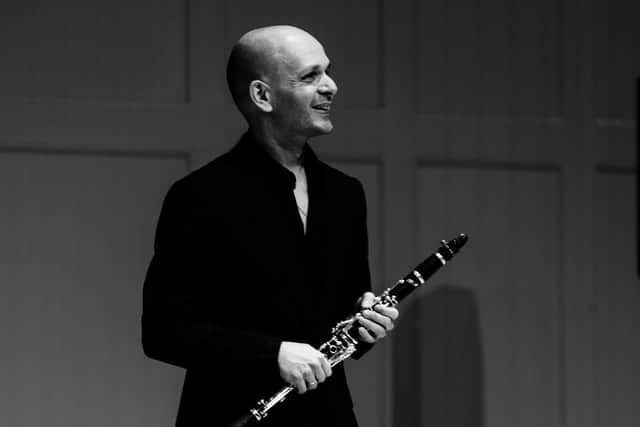Music review: SCO, Maximiliano Martín and Cerys Ambrose-Evans, Troon Town Hall
SCO, Maximiliano Martín and Cerys Ambrose-Evans, Troon Town Hall ****
The young US conductor Jonathon Heyward, who launches his musical directorship of the Baltimore Symphony Orchestra later this month, has undertaken previous engagements in Scotland as a last minute replacement. Two years ago he proved his worth in that capacity with the Scottish Chamber Orchestra. This week, his return appearance for the orchestra’s Autumn Tour was officially his gig. Efficiency was again his winning asset.
Advertisement
Hide AdAdvertisement
Hide AdIt wasn’t an easy ride for Heyward or the orchestra in Troon, the dry acoustics of its seaside Town Hall prone to laying bare even the slightest blemish in the upper string sections, or making the horns work especially hard to refine their fortissimos. Credit, though, for the skill with which they minimised such idiosyncrasies in an affable and revealing programme of Mendelssohn, Richard Strauss and Beethoven.


Mendelssohn’s The Fair Melusine isn’t new to the SCO repertory, but it still remains an obscure choice among the composer’s overtures, based on the story of a mermaid and consequently filled with liquid, fairy tale charm. If there was an initial sense of foursquareness in this performance, Heyward gradually sourced the necessary fluidity, finessing the textures and taking us to a place of dramatic enchantment.
It set the scene perfectly for Strauss’ 1947 Duet-Concertino for clarinet and bassoon, an exquisite, intoxicating late work in which the two protagonists – the SCO’s own Maximiliano Martín and Cerys Ambrose-Evans respectively – engage in flirtatious, quasi-operatic dialogue against a cushioned backdrop of strings and harp.
They were a superlative coupling, Martín’s beguiling clarinet coyly arousing obstinate, excitable comeback from Ambrose-Evan’s belligerent bassoon. This was compulsive theatre-without-words, interacting sensuously with the strings’ wispy, mercurial delicacies.
Heyward closed the programme with Beethoven’s Fourth Symphony. Beyond a dryish, tentative start, it flowed persuasively, delighting in the cut and thrust of the narrative, and ultimately gripping.